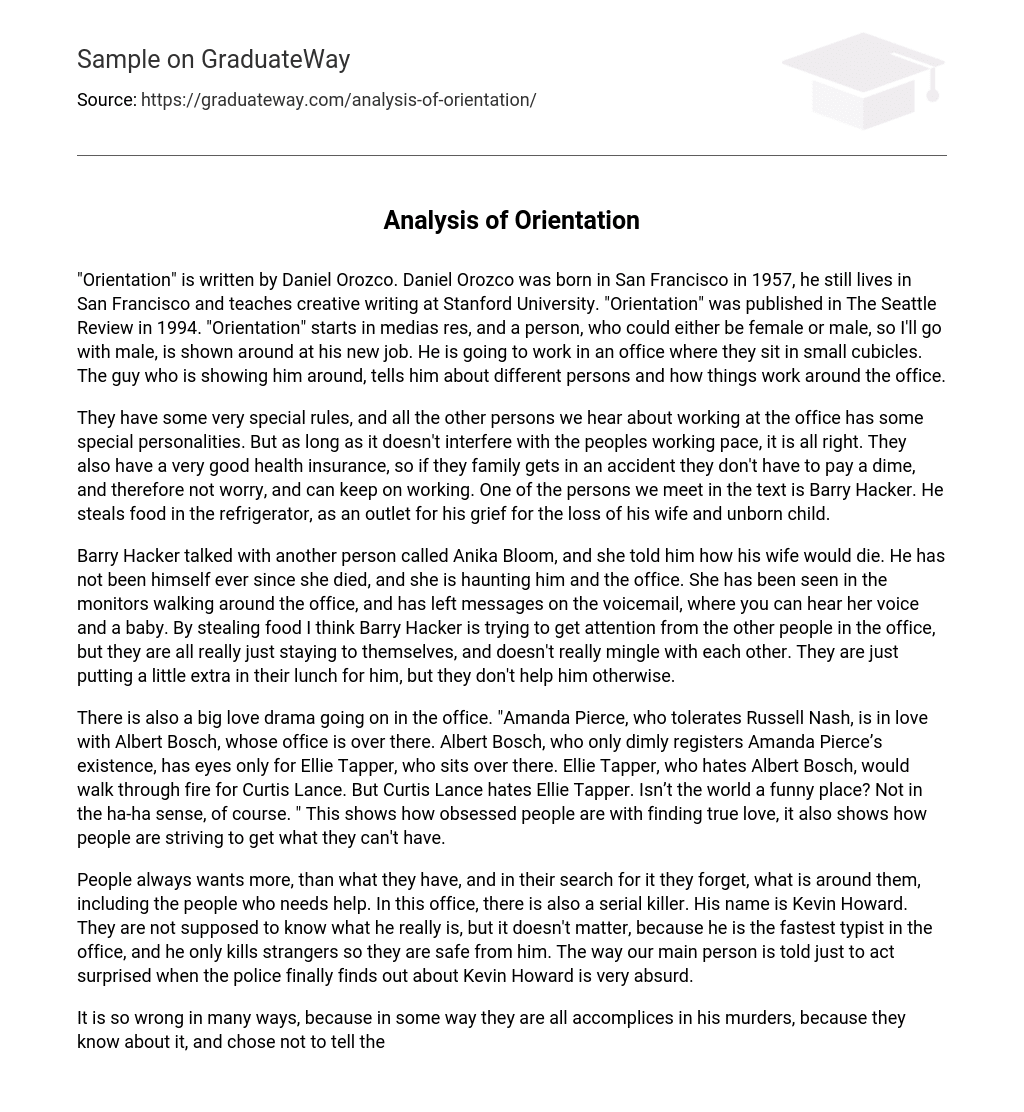“Orientation” is a short story written by Daniel Orozco, who was born in San Francisco in 1957 and currently resides in the same city. Orozco also teaches creative writing at Stanford University. The story was first published in The Seattle Review in 1994. “Orientation” begins abruptly, with a new employee being given a tour of his workplace. The narrator, who is potentially male, is introduced to the office environment, characterized by small cubicles. Throughout the tour, the narrator receives information about various individuals and the workings of the office from his guide.
Despite the unique guidelines and diverse personalities of the individuals in the office, as long as their behavior does not disrupt productivity, it is acceptable. Additionally, they provide exceptional health insurance which alleviates concerns about financial burdens in case of accidents involving family members. Among those mentioned is Barry Hacker who, in order to cope with his loss after losing his wife and unborn child, turns to stealing food from the refrigerator.
Barry Hacker had a conversation with Anika Bloom about a prediction concerning his wife’s death. Since her passing, he hasn’t been himself and believes she is haunting both him and their workplace. There have been sightings of her on the office monitors, and she has left voicemail messages with her voice and the sound of a baby. Barry Hacker’s behavior, like taking food without permission, can be seen as an attempt to get attention from his coworkers. However, they generally keep to themselves and don’t actively help him, except for adding something extra to their lunches to show support.
In the office, a love triangle is unfolding. Amanda Pierce harbors affection for Albert Bosch, but he does not reciprocate her feelings as he is enamored with Ellie Tapper. Meanwhile, Ellie Tapper loathes Albert Bosch but adores Curtis Lance, who unfortunately does not share her sentiments. This scenario underscores the paradox of individuals’ infatuations and their quest for what they cannot have.
People always want more than what they have, causing them to overlook their surroundings and neglect those in need. Interestingly, this office also harbors a secret serial killer named Kevin Howard. Although his true identity remains unknown to his colleagues, it doesn’t pose a danger to them as he exclusively preys on strangers. The instruction given to our main character to feign surprise when the police inevitably discover Kevin’s true nature is incredibly absurd.
It is fundamentally incorrect in various ways because all individuals involved are complicit in his murders; they possess knowledge but opt not to notify the authorities due to his competence at his job. The office personnel are notably superficial, possessing extensive knowledge about one another but pretending ignorance to avoid taking action and continue with their lives. In all honesty, I believe this scenario could occur in any office within a large corporation, as it aptly illustrates the state of our society today.





